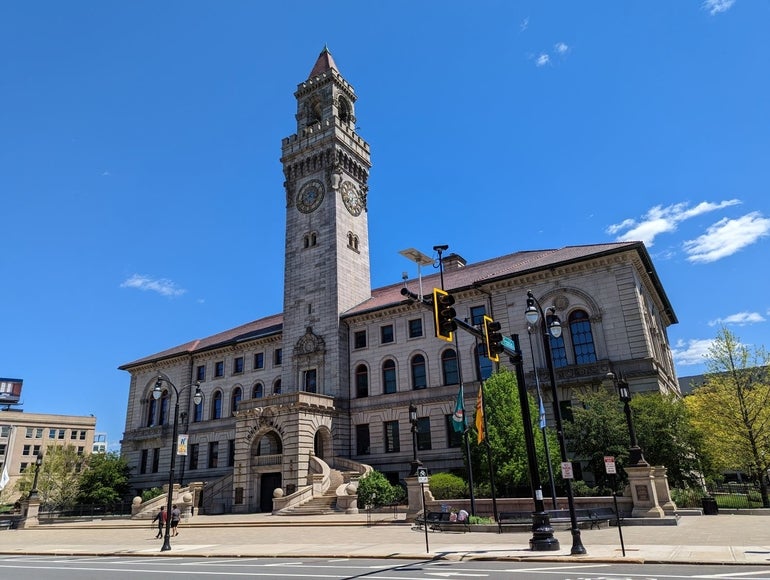The Worcester City Council will conduct its annual debate over residential and commercial tax rates Tuesday.
Last year, the council voted to enact a commercial, industrial, and personal property tax rate of $30.04 per $1,000 assessed valuation for 2024.
The new rate was a $1.22 decrease from the 2023 rate of $31.26. It was the seventh highest CIP tax rate of the 351 municipalities in Massachusetts and the sixth highest rate of the state’s 26 Gateway Cities, according to data provided by the City Assessor Samuel Konieczny as part of the meeting packet for the council’s Tuesday meeting.
[What does 2025 hold for your business and the Central Mass. economy? Take WBJ’s Economic Forecast survey.]
The 2024 residential rate of $13.75 per $1,000 assessed valuation was the 127th highest residential rate in Massachusetts, with the rate being the eighth highest among Gateway Cities.
Less than one-third of Massachusetts communities have a dual tax rate, where residential and commercial properties are taxed at different rates. In Central Massachusetts, 11 other communities have dual tax rates.
For the 2025 rates, the Worcester City Council has a number of options to choose from.
Proposed rates in Worcester for 2025 range from Line 1, which would see a singular rate of $16.44 for both residential and commercial properties, to Line 267, where the rate would be set at $13.16 for residential properties and $28.74 for commercial properties.
The chamber is advocating for the council to adopt Line 258, which would see the City set a tax rate of $13.27 per $1,000 for residential properties and a tax rate of $28.32 per $1,000 for commercial properties.
“The Chamber of Commerce recommends Line 258 to provide a modest decrease for the majority of our small businesses’ tax bills, as well as to signal to companies looking to relocate operations to Worcester that we are providing an ecosystem for growth and opportunity, “ the email reads. “Moreover, the Line 258 rate would only increase an average residential quarterly tax bill by $11 more per quarter, if the Council were to vote for the lowest residential rate this year.”
Worcester derived 63.2% of its total tax levy from residential properties, with commercial properties accounting for 36.8%, according to data included in the council meeting packet. Residential properties accounted for more of the tax levy compared to 2013, where 60.6% of the tax levy was derived from residential properties, and 39.4% was derived from commercial properties.
Eric Casey is the managing editor at Worcester Business Journal, who primarily covers the manufacturing and real estate industries.

